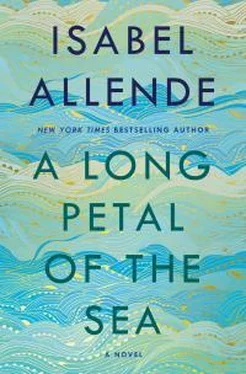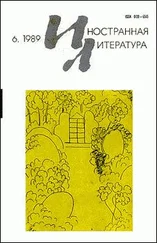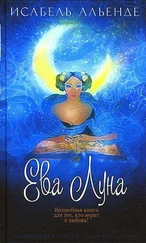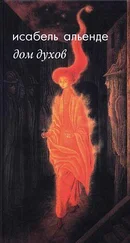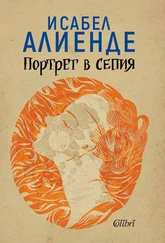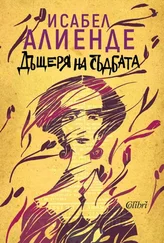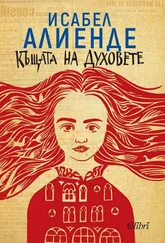Victor and his younger brother, Guillem, were educated at a nonreligious school and grew up in a small house in the Raval district of Barcelona, in a struggling middle-class Catalan home, where their father’s music and their mother’s books took the place of religion. The Dalmaus were not militants in any political party, but their shared mistrust of authority and any sort of government meant they were close to the anarchists. Marcel Lluis instilled in his sons, as well as all kinds of music, a curiosity for science and a passion for social justice. The former led Victor to study medicine, and the latter became an unshakable ideal for Guillem, who from his early days was angry at the world, and preached against big landowners, businessmen, industrialists, aristocrats, and priests—above all, against priests, with more messianic fervor than reasoned arguments. He was cheerful, boisterous, an impulsive giant. This made him a favorite with the girls, who tried in vain to seduce him, because he devoted himself body and soul to sports, bars, and male friends. Defying his parents, he enlisted in the first workers’ militias organized to defend the Republican government against the Fascist rebels. He had the vocation of a soldier, born to wield a weapon and command others who were less resolute than he was.
His brother, Victor, on the other hand, looked like a poet, with his lanky limbs, unruly hair, and constantly preoccupied expression. He said little, and always had a book in his hands. At school, Victor had to put up with relentless attacks from other boys—why don’t you become a priest, you faggot—and Guillem would step in, three years younger but much stronger, and always ready for a fistfight in a just cause. Guillem embraced the revolution like a lover, having discovered a cause worth laying down his life for.
The conservatives and the Catholic Church, who had invested money, propaganda, and apocalyptic sermons from the pulpit in the opposition cause, were defeated at the 1936 general elections by the Popular Front, a coalition of left-wing parties. Spain was split in two as if struck by an axe. Claiming they wanted to restore order to a situation they said was chaotic (even though this was far from the truth), the right wing immediately began plotting with the armed forces to overthrow the legitimate government made up of liberals, socialists, communists, and trade unionists, backed by the enthusiastic support of workers, peasants, and the majority of students and intellectuals. Guillem had struggled to finish high school, and according to his father, a great lover of metaphors, he had an athlete’s physique, the courage of a bullfighter, and the brain of an eight-year-old. The political atmosphere was ideal for Guillem: he took advantage of every opportunity to come to blows with his adversaries, even if he had trouble explaining his ideological position. He continued to find this difficult until he joined the militias, where political indoctrination was as important as training in the use of weapons. Barcelona was divided, the extremes coming together only to attack each other. There were bars, dances, sporting events, and parties for the Left, and others for the Right.
Even before he enlisted, Guillem was fighting. After clashes with insolent rich kids, he would return home battered and bruised, but contented. His parents had no idea that he went out to burn crops and steal animals from landowners’ farms, to brawl, start fires, and destroy property, until one day he came home with a silver candelabra. His mother snatched it from him and hit him with it; if she had been taller, she would have split her son’s head open, but the candelabra struck him in the middle of his back. Carme forced him to confess to what others knew, but which she had refused to admit until that moment: among other outrages, her son had profaned churches and attacked priests and nuns—in other words, doing exactly what the Nationalists’ propaganda claimed. “Is this what I brought you up for? You’ll make me die of shame, Guillem. Go and give it back at once, do you hear me?” Head bowed, Guillem left with the candelabra wrapped in newspaper.
—
IN JULY 1936, the armed forces rose against the democratic government; the uprising was soon led by General Francisco Franco, whose unremarkable appearance disguised a cold, vengeful, and brutal temperament. His most ambitious dream was to return Spain to past imperial glories; his most pressing one was to put a stop to disorderly democracy and to govern with an iron fist with the help of the armed forces and the Catholic Church. Franco’s rebels were hoping to take over the whole country within a week, but came up against unexpected resistance from the working class, organized in militias and determined to defend the rights they had won. This saw the start of a period of unleashed hatred, vengeance, and terror that was to cost Spain a million lives. The strategy of the men under Franco’s command was to spill as much blood as possible and to spread terror, the only way they could destroy any hint of resistance from the conquered people. By now, Guillem Dalmau was ready to participate fully in the Civil War. It was no longer a question of stealing a candelabra, but of picking up a weapon. Whereas before he had to find pretexts to cause mayhem, now that there was war he had no need to go looking for them. Although the principles inculcated in him at home prevented him from committing atrocities, they did not cause him to defend often-innocent victims from his comrades’ reprisals. Thousands of murders were committed, above all of priests and nuns. This forced many people to seek refuge in France to escape the Red hordes, as the Nationalist press called them. The Republic’s political parties soon gave the order to put a stop to this violence since it ran counter to revolutionary ideals, and yet the abuses continued. Among Franco’s forces, however, the order was the exact opposite: they were to crush and punish people with fire and blood.
Meanwhile, absorbed in his studies, Victor turned twenty-three; he was still living with his parents, before he was recruited into the Republican Army. At home he would get up at dawn and before leaving for the university prepare breakfast for them, his only contribution to the household chores. He would return very late to eat what his mother had left him in the kitchen—bread, sardines, tomatoes, and coffee—and then continue studying. He stayed aloof from his parents’ political passion and his brother’s fanaticism. “We’re making history. We’re going to rescue Spain from centuries of feudalism. We’re setting an example for Europe, the answer to Hitler and Mussolini,” Marcel Lluis Dalmau would lecture his sons and friends at the Rocinante, a bar that looked gloomy but was lofty in atmosphere, where he met daily with friends to play dominoes and drink the lethal wine. “We’re going to put an end to the privileges of the oligarchy, the Church, the big landowners, and all the other exploiters of the people. We have to defend democracy, but remember that not everything is politics. Without science, industry, and technology, no progress is possible, and without music and art, there’s no soul,” he would maintain.
Victor agreed with his father in principle, but tried to escape his lectures, which were almost always the same. Nor did Victor talk about politics with his mother; he restricted himself to helping her teach the militiamen literacy in the basement of a brewery. A high school teacher for many years, Carme thought education was as important as bread, and that anyone who could read and write had a duty to teach those abilities to others. For her, the classes they gave the militiamen were no more than her usual routine, but to Victor they were torture. “They’re like donkeys!” he would protest, frustrated at spending two hours on the letter A. “They’re no such thing! These boys have never seen an alphabet. I’d like to see how you’d manage behind a plow,” his mother would respond.
Читать дальше
